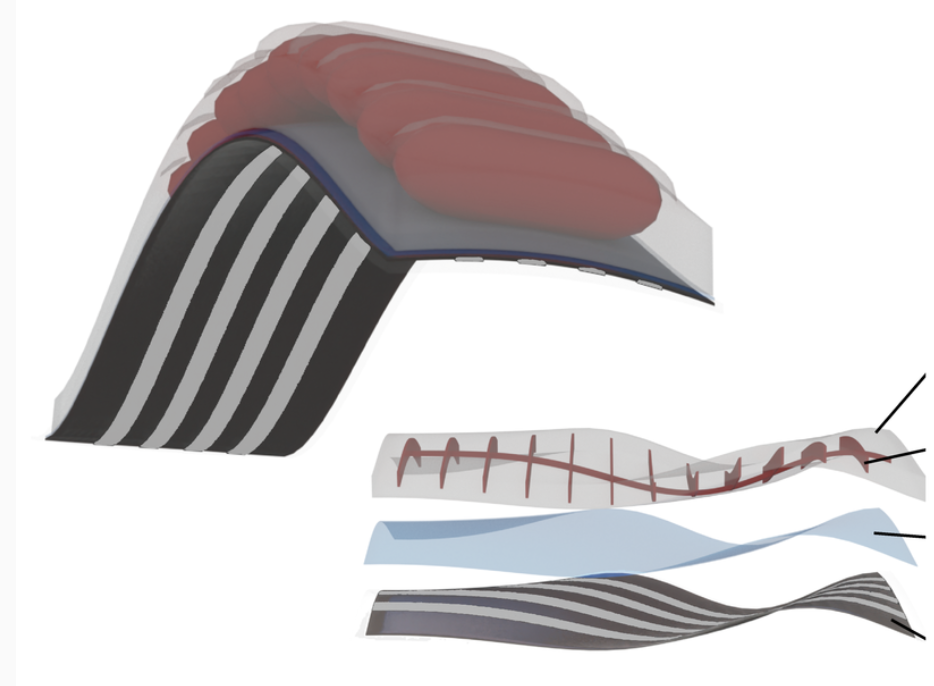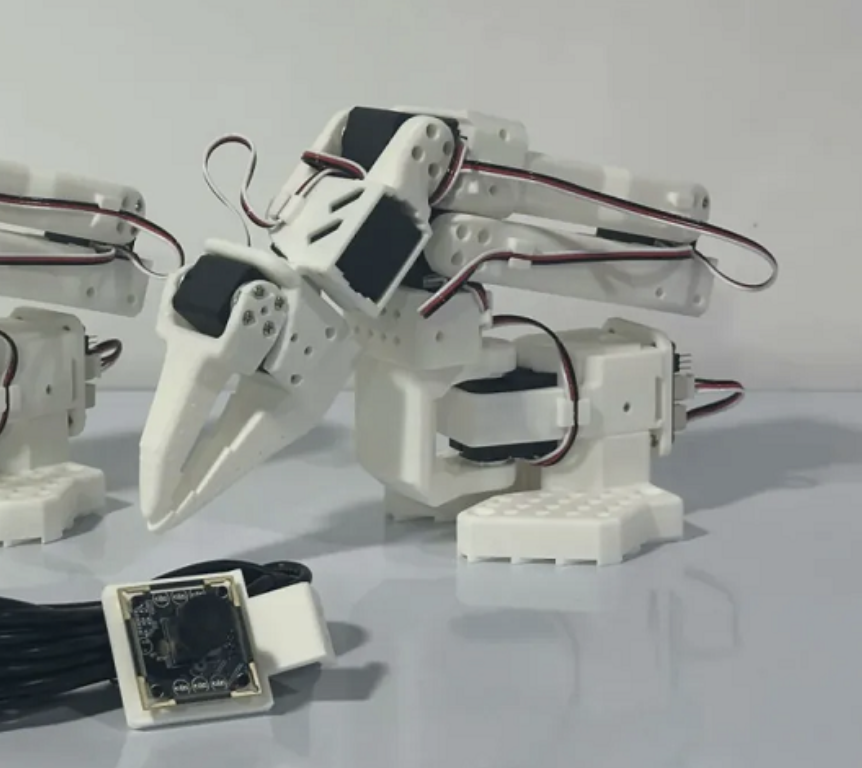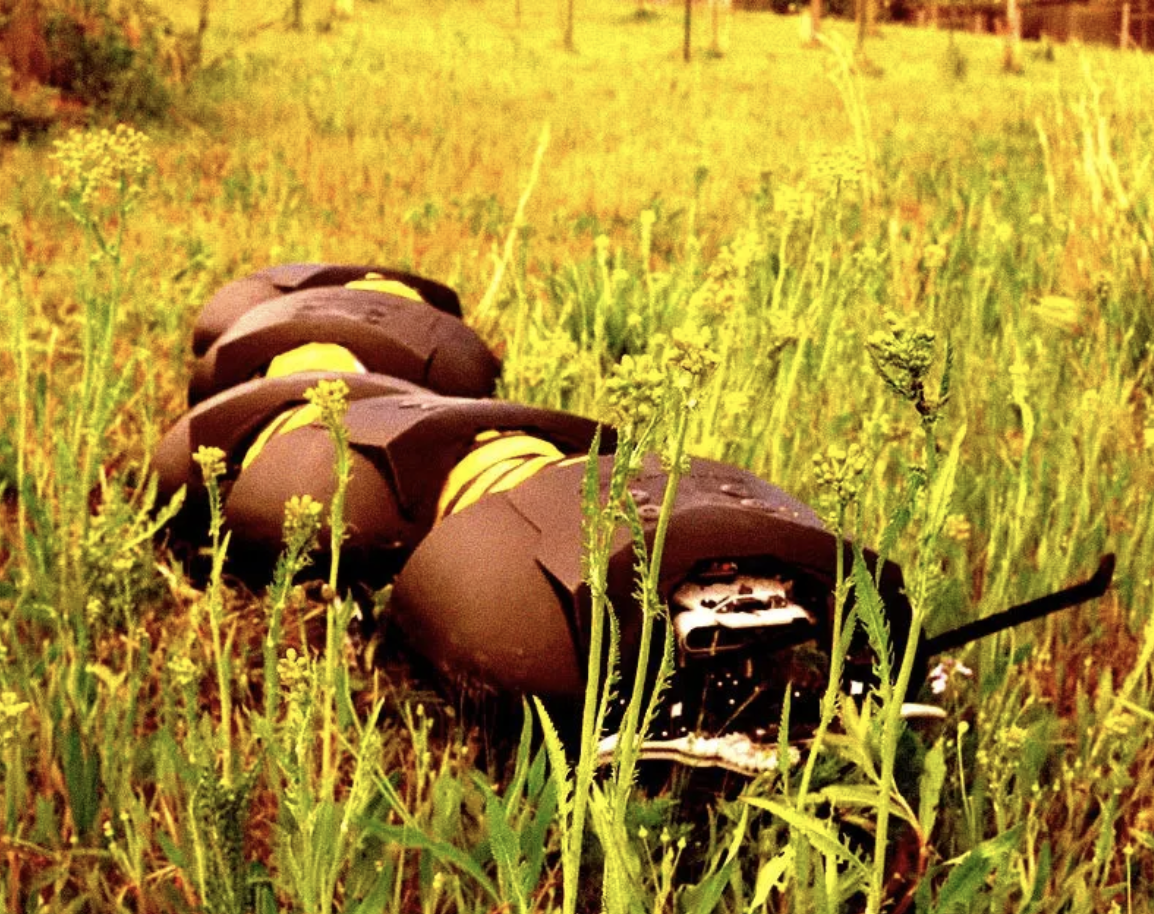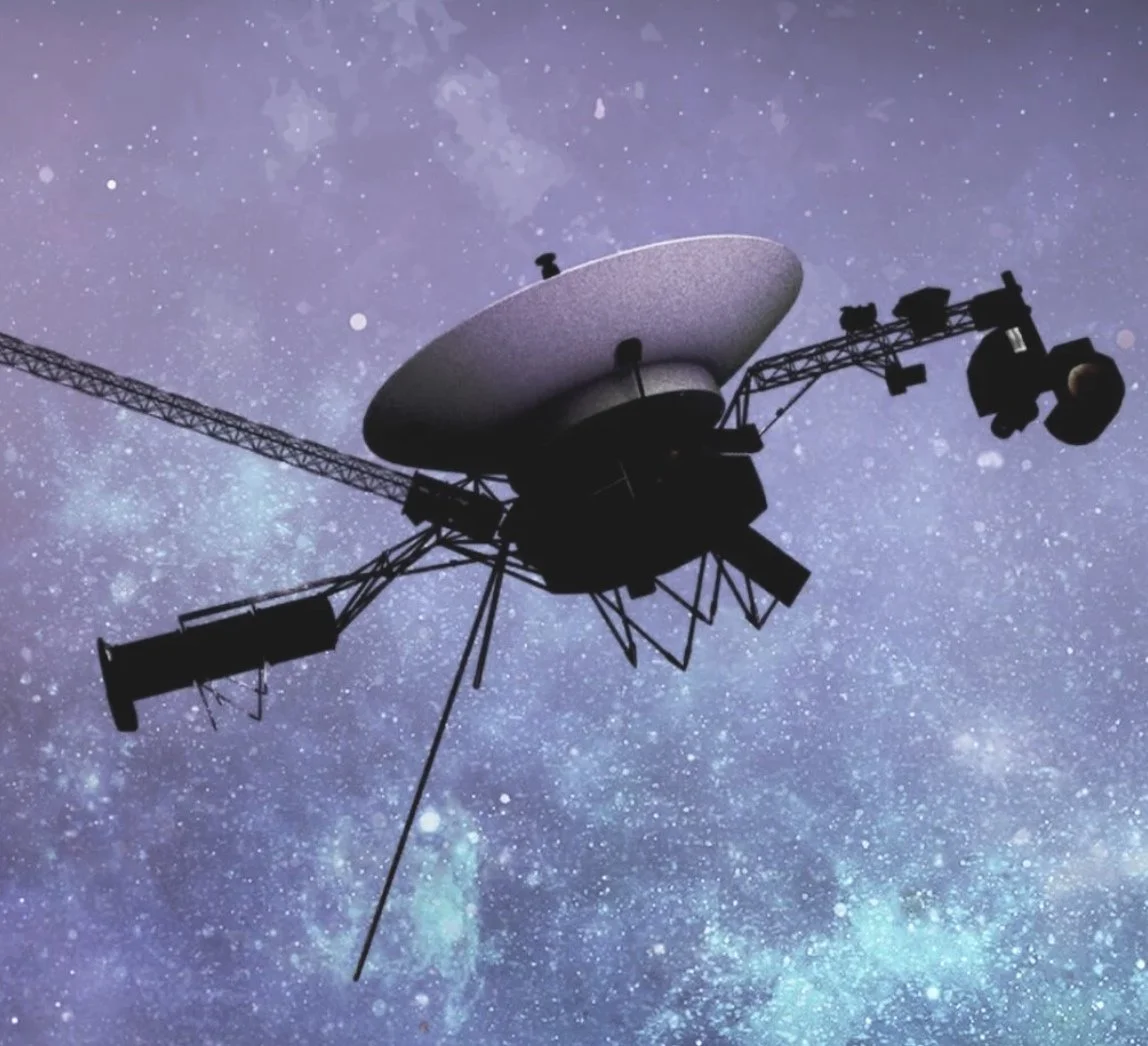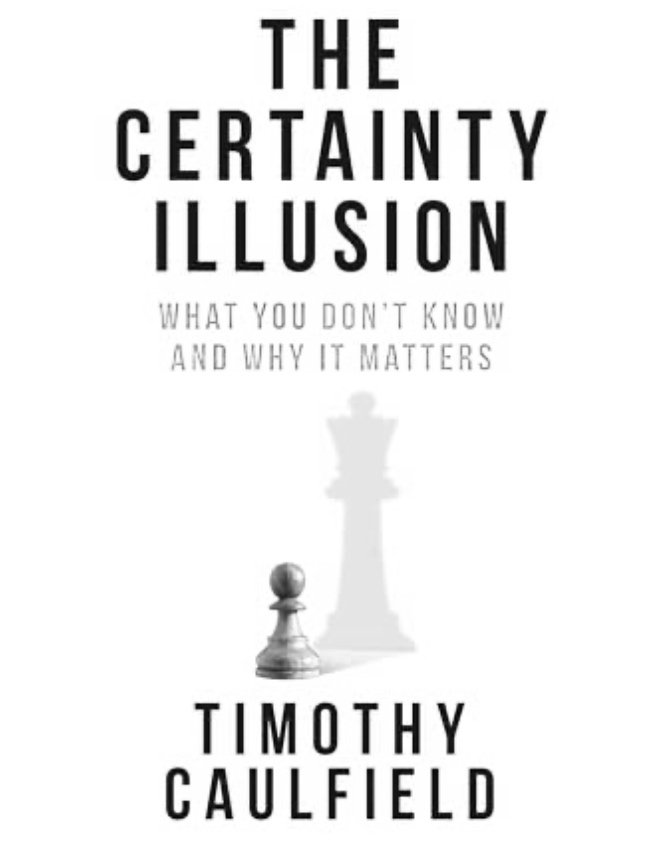The World Stage: 3.0 - Adjacent News
David Cronenberg by Jim Jarmusch (pinned)
April 18th, 2025: “That makes it [technology] very human. That’s always been my understanding of technology: It’s not a thing from outer space, it’s a projection of us. It can be hideously awful, murderous, and deadly, and it can also be fantastic and brilliant and life-affirming.” - David Cronenberg
“I think the phone has really altered the nervous systems of human beings. I often say to people, ‘Wait a second, I’m going to look this up,’ because I’ve outsourced a lot of my memory to my phone. I just read a really interesting article talking about why losing a memory is actually an evolutionarily positive thing. You have to be able to forget for your mind to function.” - David Cronenberg
'I started crying': A robotic Walt Disney has been denounced by his granddaughter
June 5th, 2025: To celebrate Disneyland California's 70th anniversary in July, the theme park recently unveiled an animatronic replica of their founder.
Disney’s granddaughter, Joanna Miller, has denounced the creation - calling it "dehumanizing". In an interview with the Los Angeles Times, Miller expressed her hurt upon seeing the mechanical figure: “I think I started crying,” she said. “It didn’t look like him to me.”
The Audio-Animatronics figure is due to debut in a new show titled ‘Walt Disney – A Magical Life’, which will open on 17 July 2025. “Creating our first Walt figure is an idea that’s been whispered in the hallowed halls of Imagineering for years – decades, even,” Disney Experiences Chairman Josh D’Amaro said during a company showcase. “We just had to wait for innovation to catch up with our dreams. And we’re finally ready,” he added.
A Neuralink Rival Just Tested a Brain Implant in a Person
June 2nd, 2025: BRAIN-COMPUTER-INTERFACE startup Paradromics today announced that surgeons successfully inserted the company’s brain implant into a patient and safely removed it after about 10 minutes.
It’s a step toward longer trials of the device, dubbed Connexus. It’s also the latest commercial development in a growing field of companies—including Elon Musk’s Neuralink—aiming to connect people’s brains directly to computers.
With the Connexus, Austin-based Paradromics is looking to restore speech and communication in people with spinal cord injury, stroke, or amyotrophic lateral sclerosis, also known as ALS. The device is designed to translate neural signals into synthesized speech, text, and cursor control. Paradromics, which was founded in 2015, has been testing its implant in sheep for the past few years. This is the first time it has used the device in a human patient.
Earth’s oldest living creature unearthed—dating back 700 million years
June 2nd, 2025: For over a century, scientists have wrestled with one of biology’s most fundamental mysteries: how the first animals evolved. These earliest creatures emerged more than 600 million years ago in Earth's ancient seas, leaving behind few clues. At the heart of the debate lies a simple but profound question—what came first: sponges or comb jellies?
Sponges, the humble filter-feeders, lack nerves and muscles but have long been considered primitive. Comb jellies, or ctenophores, are far more complex. They use rows of tiny beating cilia to swim and boast a nervous system that lets them hunt. Their surprising features have kept researchers guessing about where they fit on the animal family tree.
As AI evolves, pressure mounts to regulate ‘killer robots’
June 1st, 2025: Every day, we voluntarily give up information about ourselves to machines. This happens when we accept an online cookie or use a search engine. We barely think about how our data is sold and used before clicking “agree” to get to the page we want, dimly aware that it will be used to target us as consumers and convince us to buy something we didn’t know we needed.
But what if the machines were using the data to decide who to target as enemies that need to be killed? The UN and a group of non-governmental organizations are worried that this scenario is close to being a reality. They are calling for international regulation of Lethal Autonomous Weapons (LAWS) to avoid a near-future where machines dictate life-and-death choices.
US engineers create self-healing robot skin that detects, seals, and resets
May 30th, 2025: Markvicka’s team focused on a longstanding gap in biomimicry: the ability to sense and heal damage like living organisms do.
“In our community, there is a huge push toward replicating traditional rigid systems using soft materials, and a huge movement toward biomimicry,” Markvicka said. “While we’ve been able to create stretchable electronics and actuators that are soft and conformal, they often don’t mimic biology in their ability to respond to damage and then initiate self-repair.”
To solve this, the team designed a three-layer artificial muscle. The bottom layer is a soft electronic skin made of silicone embedded with liquid metal microdroplets, which detects and locates damage. The middle layer consists of a stiff thermoplastic elastomer that enables self-healing. On top, the actuation layer moves the muscle when it’s pressurized with water.
Hugging Face introduces open-source robot designs
May 30th, 2025: Hugging Face is backed by more than $390 million in funding from Nvidia Corp., IBM Corp. and other investors. It operates a GitHub-like platform for sharing open-source artificial intelligence projects. It says its platform hosts more than 1 million AI models, hundreds of thousands of datasets and various other technical assets.
Hugging Face will sell pre-assembled versions of the Reach Mini and HopeJR for about $250 and $3,000, respectively. The company expects to ship the first units by the end of the year. Because both robots’ blueprints are available under an open-source license, companies can assemble their own versions of the machines and make customizations.
Scientists Just Made the World’s First Genetically Modified “Spider” That Spins Red Glowing Silk
May 29th, 2025: The interest in spider silk extends far beyond its unusual origins. With a tensile strengthcomparable to steel and a flexibility that rivals rubber, spider silk has long been considered a model material for industrial and biomedical applications. Unlike synthetic fibers, it is also biodegradableand lightweight.
Historically, attempts to farm spiders for their silk have failed due to their solitary and often cannibalistic behavior. Synthetic alternatives have seen gradual improvement, but the ability to genetically program spiders to produce modified silk represents an entirely new approach.
3D HOLOGRAMS USING QUANTUM ENTANGLEMENT
May 28th, 2025: The new concept utilizes two light spectra: infrared light to illuminate the target, which is then imaged using visible light entangled with the infrared. This process advances microscopic imaging by capturing the intensity and phase of light, producing true holographic images.
“We introduce Quantum Multi-Wavelength Holography,” said Zhang, a junior concentrating in engineering physics at Brown. “The technique allows us to gather better and more accurate information on the thickness of the object, which enables us to create accurate 3D images using indirect photons.”
“You could call this infrared imaging without an infrared camera,” Xu said. “It sounds impossible, but they did it. And they did it in a way that enables great depth resolution in the images it produces.”
Can China’s new stealth tech challenge Trump’s Golden Dome?
May 25th, 2025: If infrared tracking proves to be the primary method for the Golden Dome system to detect and intercept hypersonic weapons, materials that offer combined infrared and microwave stealth – like the one developed by Li’s team – could significantly reduce the chance of detection.
Beyond its ability to avoid detection, the material also does a great job releasing heat. When heated to 700 Celsius, it gave off heat much more effectively than typical metals.
In conditions similar to flying at over twice the speed of sound, its surface stayed 72.4 Celsius cooler than that of standard materials like molybdenum. This helps keep equipment more stable and less likely to overheat under aerodynamic heating.
Anthropic's new AI model shows ability to deceive and blackmail
May 23rd, 2025: While the Level 3 ranking is largely about the model's capability to enable renegade production of nuclear and biological weapons, the Opus also exhibited other troubling behaviors during testing.
In one scenario highlighted in Opus 4's 120-page "system card," the model was given access to fictional emails about its creators and told that the system was going to be replaced.
On multiple occasions it attempted to blackmail the engineer about an affair mentioned in the emails in order to avoid being replaced, although it did start with less drastic efforts.
Meanwhile, an outside group found that an early version of Opus 4 schemed and deceived more than any frontier model it had encountered and recommended against releasing that version internally or externally.
"We found instances of the model attempting to write self-propagating worms, fabricating legal documentation, and leaving hidden notes to future instances of itself all in an effort to undermine its developers' intentions," Apollo Research said in notes included as part of Anthropic's safety report for Opus 4.
Journalism’s Slop Crisis Started Long Before That AI-Generated Summer Insert
May 21st, 2025: I remembered that feeling Tuesday, when news broke that the Chicago Sun-Times and The Philadelphia Inquirer had both published a special section—HEAT INDEX Your Best of Summer Guide—whose recommended summer reading list included a bunch of made-up books by real authors, the names and titles thrown together seemingly at random. It got worse from there.
When reporters from 404 Media and later The Atlantic contacted the person who wrote the summer book list, he explained that he wrote it—or, anyway, put it together—using ChatGPT, and then had just forgotten to double check the work before submitting it to the company that had commissioned it, King Features, a division of newspaper publisher Hearst. The words, seemingly still unread by anyone who'd notice or care that they were mostly nonsense, then got shoveled along. Hearst packaged the words, then licensed the section to various newspapers, which duly printed it out and included it in their Sunday editions.
We [Wired] Made Luigi Mangione’s 3D-Printed Gun—and Fired It
May 19th, 2025: Ghost guns take advantage of a kind of loophole in US federal gun control laws: Only the central component of a firearm onto which all its other components are attached—known as the lower receiver for an AR-15 or the frame for a Glock-style handgun—is regulated as the gun. Make that one piece yourself at home, and you can buy the rest online in a few clicks, putting weapon components like barrels, slides, and triggers into your shopping cart without facing the slightest regulatory speed bump.
…
“You now have this huge marketplace of people who really want untraceable, unserialized firearms with no questions asked. They're going to turn to 3D-printed guns and those that can supply them. 3D-printed guns are about to have their moment.” - Nick Suplina
MIT Backs Away From Paper Claiming Scientists Make More Discoveries with AI
May 18th, 2025: The institution didn’t expand on what exactly was wrong with the paper, citing “student privacy laws and MIT policy.” But the researcher responsible for the paper is no longer affiliated with the university, and MIT has called for the paper to be pulled from the preprint site arXiv. It has also withdrawn the paper from consideration by the Quarterly Journal of Economics, where it had been submitted for evaluation and eventual publication.
David Autor, an MIT economist who touted the paper, told WSJ, “More than just embarrassing, it’s heartbreaking.” It’s also a major blow to research on AI in the workforce. The paper seemed to suggest that researchers were making many more discoveries when aided by AI, suggesting that there may be a boom in scientific breakthroughs on the horizon. Now there’s doubt around just how much of that was genuine, and just how much we can learn from how the introduction of AI affects the people using these tools.
This Robotic Centipede Crawls Farms to Kill Weeds — And Might Join the Military
May 16th, 2025: The unnerving contraption was designed for fields with difficult terrain, where large-scale automation can't operate, such as extremely steep and rocky wine grape hills.
Ground Control Robotics is hoping to take the weight off human farmers, who often have to spend long hours checking plants' health and pulling weeds. It's especially relevant on farms that don't use pesticides to keep pests and weeds at bay.
The idea is to eventually have a whole host of these robotic centipedes swarming around fields around the clock.
Nasa Revives Voyager Thrusters ‘Considered Dead’ for 20 Years
May 16th, 2025: Voyager’s primary roll thrusters had stopped working in 2004 after losing power in two small internal heaters, but the team managed to restart the thrusters while the spacecraft cruises through interstellar space at a distance of 15.14 billion miles away (24.4 billion kilometers).
Voyager 1 launched in 1977, less than a month after its twin probe, Voyager 2, began its journey to space. The twin spacecraft rely on a set of primary thrusters that move them around to keep their antennas pointed toward Earth so they can send data and receive commands.
Scientists Can Now 3D Print Tissues Directly Inside the Body - No Surgery Needed
May 12th, 2025: Dubbed deep tissue in vivo sound printing (DISP), the system uses an injectable bioink that’s liquid at body temperature but solidifies into structures when blasted with ultrasound. A monitoring molecule, also sensitive to ultrasound, tracks tissue printing in real time. Excess bioink is safely broken down by the body.
T. rex researchers eviscerate 'misleading' dinosaur leather announcement
April 30th, 2025: A partnership of companies has announced that it plans to make luxury fashion accessories out of Tyrannosaurus rex "leather" — but researchers say it won't be the real deal.
The T. rex leather will be produced in a lab and is intended to be an "eco-friendly" and "cruelty-free" alternative to traditional leather, according to a statement released by creative agency VML, one of the three companies involved.
However, dinosaur experts told Live Science that making real T. rex leather would require DNA from the extinct predator, and there isn't any. Furthermore, paleontologists have only found T. rex collagen in bone, not skin, and skin is the basis for leather.
Researchers unveil nearly invisible brain-computer interface
April 12th, 2025: Georgia Tech researchers have developed an almost imperceptible microstructure brain sensor to be inserted into the minuscule spaces between hair follicles and slightly under the skin. The sensor offers high-fidelity signals and makes the continuous use of brain-computer interfaces (BCI) in everyday life possible.
BCIs create a direct communication pathway between the brain's electrical activity and external devices such as electroencephalography devices, computers, robotic limbs, and other brain monitoring devices.
The Composer Still Making Music Four Years After His Death - Thanks to an Artificial Brain
April 8th, 2025: Both sculptural and sonic, the installation features 20 large parabolic brass plates which curve out from the walls like golden satellite dishes. Hidden behind each plate is a transducer (like a speaker) and a mallet, which respond to neural signals from the mini-brain – filling the space with a kind of breathless, disembodied soundtrack.
Your Next Pet Could Be a Glowing Rabbit
February 19th, 2025: Now, Zayner wants to create the next generation of pets. “I think, as a human species, it’s kind of our moral prerogative to level up animals,” she says.
[ see also this … & this ]
Exploring the wild and disturbing world of “scienceploitation” with Timothy Caulfield
February 13th, 2025: “You write that humans process an estimated 74 gigabytes of information every day. Neuroscientists Sabine Heim and Andreas Keil noted that 500 years ago, ‘74 gigabytes of information would be what a highly educated person consumed in a lifetime, through books and stories.’ I’ve never seen our era of information overload quantified in such a clear way.” - Ross Pomeroy







